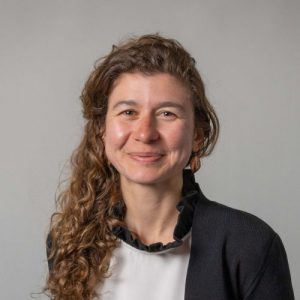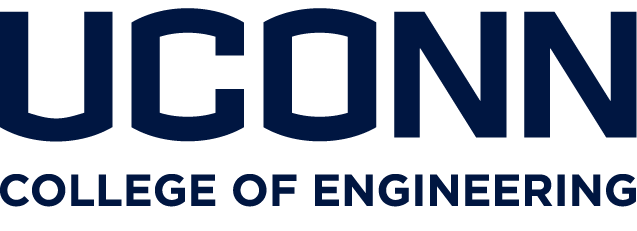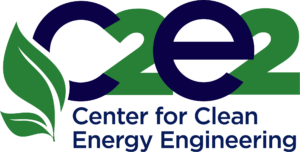Center for Clean Energy Engineering Welcomes New Faculty Member Desen Ozkan
 May 3, 2024 | Jordan Baker, Center for Clean Energy Engineering
May 3, 2024 | Jordan Baker, Center for Clean Energy Engineering
One of UConn and the College of Engineering’s newest faculty is now joining the Center for Clean Energy Engineering (C2E2). Prof. Desen Ozkan, who joined the University back in Fall 2023 in the Chemical and Biomolecular Engineering department, will also be joining C2E2 and contributing to the mission of clean energy technologies.
Her work, which centers around Engineering Education, aims to connect the classroom with environmental science. Her goals are to bring a holistic and sociotechnical approach to engineering education that broadens the way environmental problems are defined and solved. She is working to bring this approach to climate change by incorporating these issues from real-world local contexts into the course curriculum. Ozkan sees great potential and student interest to this approach due to the initiatives that UConn is already making to transition their energy use to achieve carbon neutrality by 2030.
Ozkan states “I have learned a lot from people doing this work at UConn, especially because there is such a push towards transitioning our energy use and thinking about energy efficiency and carbon neutrality. So, that has been helpful just to see all the excitement and projects. I ultimately want to connect what is happening locally, infrastructure wise and research wise to the curriculum to examine how this may shift student learning in their courses and disciplinary programs.”
She views the push for changes within the UConn community as an opportunity for students to engage in the problem of global climate emergency by understanding the countless decisions that make up local energy transitions. These decisions are never purely technical or social, which is why there’s a need to frame these problems and solutions holistically—where we value the social dimensions of a transition just as much as the technical elements. At UConn, there is an opportunity for engineering educators to connect the technical concepts of energy systems from the classroom to local energy infrastructure contexts that engage students in real-world, cross-disciplinary understandings of sociotechnical energy systems.
By joining C2E2, Ozkan will use her research and clean energy initiatives to expand UConn’s mission in clean energy technologies. In response to joining the center and the research there, she said, “I’m honored to learn from the wide array of clean energy experts at C2E2 and hope to further the center’s mission by bridging the technical expertise to broader contexts such as those in energy equity and environmental justice through equitable and interdisciplinary collaboration.”
She plans to introduce clean energy knowledge and practice into the curriculum, helping to engage students critically with energy engineering such that they strive to work with people of different backgrounds and different ways of knowing to create and implement the technologies being developed. One of her current projects is a longitudinal, qualitative study that examines shifts in students’ contextual energy literacy and sociotechnical identities from engaging in sustainable energy projects. She is looking at how students from different disciplines come to energy projects and how interdisciplinary learning can inform energy projects broadly. While this project is exploratory in nature, she envisions the insights as informing a broader energy curriculum for engineering and liberal arts students.
Ozkan is also working on a planning project to develop a collaborative model of sociotechnical decision making from insights generated in examining New England’s electricity sector. She is working with colleagues in the Engineering for Human Rights Initiative and Colorado School of Mines, Engineering Design and Society Department to bring together experts in this space—engineers, ratepayers, activists, academics, regulators—to discuss processes and decision-making that go into energy transition decisions. Through an emphasis on process, this project aims to construct a sociotechnical model of engagement to build infrastructural literacy and collaboration. Themes that run through each of these projects create the need for cross-disciplinary engagement and collaboration—both of which are impossible without learning across fields, examining disciplinary values, and continuously constructing and reconstructing a common language for collaboration.
According to Ozkan, “the learning never stops.”

